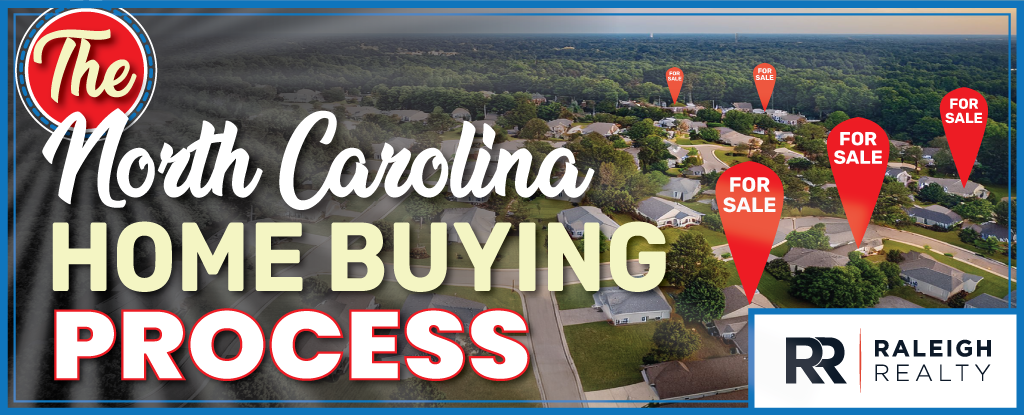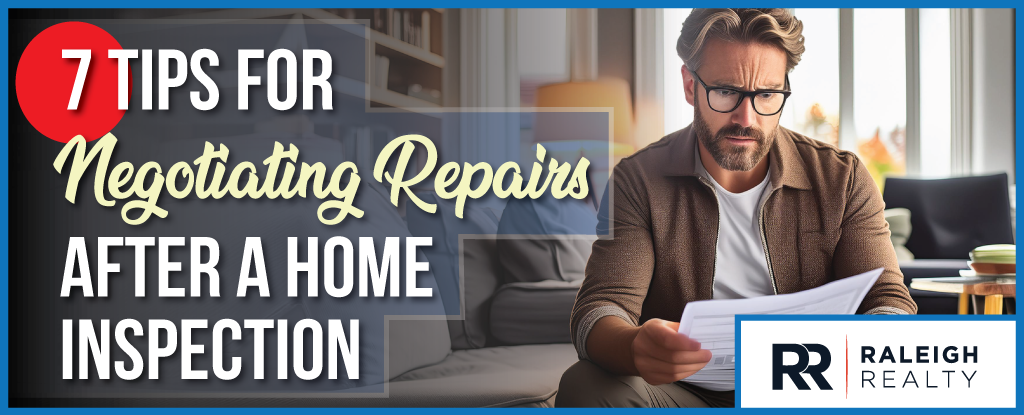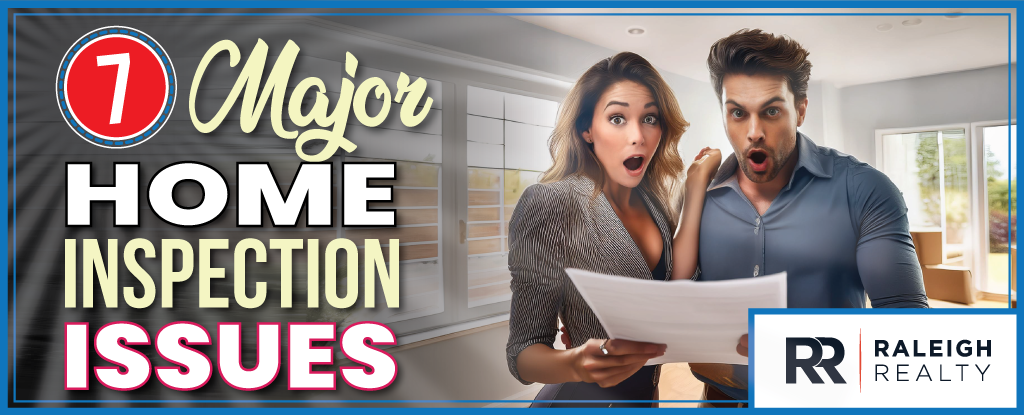The Complete Guide to Home Inspections
Here are seven essential things every homebuyer should know about a home inspection!
Buying a home is one of the most significant investments, and a thorough home inspection is your best defense against costly surprises.
Whether you're eyeing a charming bungalow in Five Points or a modern home in North Hills, understanding the inspection process can save you thousands of dollars and give you invaluable peace of mind when purchasing a home.
Here are the seven essential things every Raleigh homebuyer needs to know about home inspections.
1. What is a Home Inspection?
A home inspection is a part of the home-buying process and is a comprehensive, non-invasive examination of a property's current condition, typically conducted by a licensed professional inspector.
After you go under contract, it is common for the buyer to hire a home inspector to observe the house visually. The home inspector will identify safety, health, or major mechanical issues in line with the state's standards, ensuring everything is to code. This is especially important if you are buying a home in bad condition.
Unlike an appraisal, which determines the home's market value, an inspection focuses on the property's structural integrity and functionality. The inspector is your advocate, objectively assessing the home's condition and identifying potential problems affecting your safety, comfort, or wallet.
In North Carolina, home inspectors must be licensed by the state, ensuring they meet specific education and experience requirements. This professional will spend several hours methodically examining the property and provide you with a detailed written report of their findings, complete with photographs and recommendations for repairs or further evaluation by specialists.

2. How Much Does a Home Inspection Cost?
The location of the home for sale, as well as its age and size, will determine the cost of a home inspection. The average cost is $343, but it can be as much as $424.
Other things that can make a home inspection more expensive are how far the inspector must travel and how unique the home is. You also might find that more experienced home inspectors charge more than less experienced ones.
Several factors influence the cost:
Size of the home: Larger homes require more time and effort to inspect thoroughly. A 1,200-square-foot ranch will cost less than a 3,500-square-foot two-story home.
Age and complexity: Older homes with unique features (like swimming pools, outbuildings, or complex HVAC systems) may require additional time and expertise.
Additional services: Many inspectors offer add-on services such as radon testing ($150-$200), termite inspections ($75-$150), or mold testing ($200-$400).
The buyer always pays for the buyer's inspections as part of the closing process. This is because the process is designed to protect the buyer, so they are responsible for the cost.
For a pre-listing inspection, the seller would cover the cost before listing the home on the market.
3. How Long Does a Home Inspection Take?
A typical home inspection in Raleigh takes two to four hours, depending on the property's size, age, and condition.
We strongly encourage our clients to attend the inspection. This allows you to ask questions, understand the home's systems, and get maintenance tips from the professional. The inspector will typically do a walk-through with you at the end, highlighting their key findings and explaining any concerns.

4. What Parts of the Home Are Examined
A comprehensive home inspection covers the property's interior and exterior, including all major systems and components. Here's what your inspector will evaluate:
Roof
The roof is one of the significant items on a home inspector's list to ensure it is functioning as intended by protecting the home from rain and other things that could cause damage. A well-made roof can last up to 30 years.
There are some obvious indications that your roof needs repair, so your home inspector will likely know immediately if it's worth further inspection by a roofing specialist.
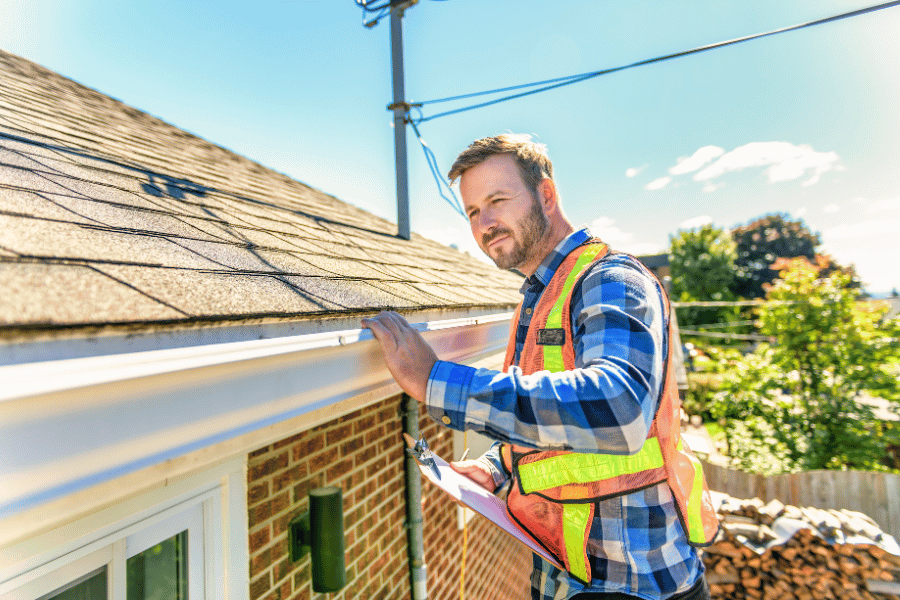
HVAC System
Inspectors will examine the HVAC system, including heating and cooling equipment, ductwork, and ventilation. A properly functioning HVAC system is essential for comfort and energy efficiency in Raleigh, with humid summers and variable winters.
Electrical
Home inspectors will also examine the electrical aspects of the home. They will examine the main panel, wiring, outlets, switches, and GFCI protection. Many older homes in established Raleigh neighborhoods may need electrical updates to meet current safety standards.
Plumbing System
The bathtubs, toilets, sinks, showers, pipes, water lines, and any home areas where water runs through will be checked. They will test the filler mechanisms, the levels in all toilets, and the flappers to ensure they work as they should.
Attic
If the home has an attic, a home inspector will check the condition of the insulation, as this is an essential aspect of how energy-efficient the house is. They also check the ventilation in the attic, as poor ventilation can lead to moisture and mold growth.
A home inspector will also look for signs of damaged insulation, water stains, or other signs of leaks to ensure that there isn't any water damage.
In homes where the furnace is in the attic, they will look at whether rust is around it. This is because it is also a sign of water damage.
Looking at the attic is also an opportunity for the home inspector to assess the overall framing of the home and the roof. They use this information to help them determine whether or not the roofing system on the house is strong enough to withstand high winds.
Floors, Ceilings, and Walls
A home inspector will check the floors, ceilings, and walls for water damage, mold, or discoloration. They will look for cracks, sagging, or any structural damage.
Windows and Doors
All of the windows and doors in the home will be checked to ensure they open and close correctly.
Foundation
Home inspectors typically start outside the home and work inside when looking at the foundation.
They will look for signs of a faulty foundation, including a sunken porch, cracked steps leading up to the house, or a chimney leaning away from the home.
Once inside the home, there are also signs that can be found of a problematic foundation. These can include considerable cracks in the ceiling or drywall, windows or doors that are hard to close, lopsided flooring, or several cracked tiles.
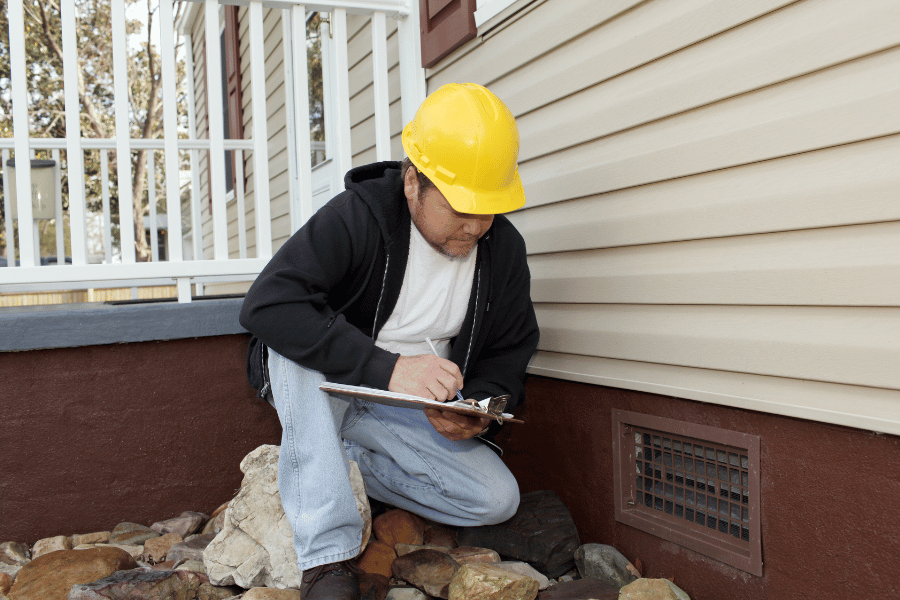
Basement
Inspectors will look for any signs of water damage in the basement, such as damaged walls, uneven flooring, mold or mildew growth, a musty odor, or moisture.
An inspector will also examine the areas around basement doors and windows to ensure no water can enter.
5. Home Inspection Checklist
Professional home inspectors follow standardized checklists to ensure nothing is overlooked. Here are the key categories they examine:
Safety Hazards: Electrical problems, gas leaks, carbon monoxide risks, lead paint (in homes built before 1978), asbestos materials, and structural issues that could pose dangers.
Functionality Issues: Systems or components that aren't working correctly, such as malfunctioning appliances, plumbing leaks, or HVAC problems.
Maintenance Needs: Items that require immediate or near-term attention, like clogged gutters, worn weatherstripping, or aging caulk around windows and doors.
Code Violations: While inspectors don't enforce building codes, they note installations or modifications that don't meet current standards, such as improper electrical work or inadequate ventilation.
Wear and Tear: Normal aging of components and systems, helping you understand what might need replacement in the coming years.
The inspector will categorize findings as immediate safety concerns, major issues requiring repair, minor problems, or maintenance items. This prioritization helps you understand what needs immediate attention versus what can be addressed over time.
6. What Inspectors Most Commonly Find
Specific issues appear more frequently than others in a home. Being aware of these common problems can help you make informed decisions:
Foundation and Structural Issues: Settlement cracks, moisture problems in crawl spaces, and structural modifications made without permits. Raleigh's clay soil can cause foundation movement, making this a concern in our area.
Electrical Problems: Outdated electrical panels, aluminum wiring (standard in homes built in the 1960s-70s), insufficient electrical capacity for modern needs, and DIY electrical work that doesn't meet code standards.
Roofing Issues: Missing or damaged shingles, inadequate flashing, gutter problems, and poor ventilation. Our area's weather can be harsh on roofs, especially during storm season.
HVAC Concerns: Aging systems, poor maintenance, inadequate ductwork, and inefficient equipment. Given our climate, HVAC problems can be both costly and uncomfortable.
Plumbing Problems: Leaks, low water pressure, outdated fixtures, and sewer line issues. Some older Raleigh neighborhoods have aging infrastructure that can affect home plumbing systems.
Moisture and Drainage: Poor grading, inadequate gutters, basement or crawl space moisture, and ventilation problems that can lead to mold growth.
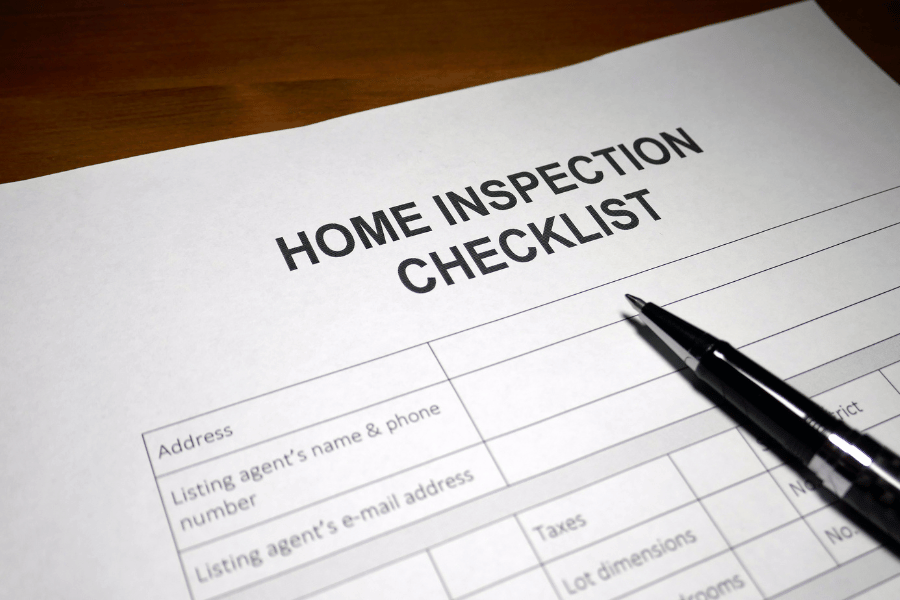
7. Negotiating After the Home Inspection
You have several different options when it comes to negotiating repairs after a home inspection. One of the benefits of a home inspection is that it can help identify deficiencies in the home you are considering buying.
If issues are revealed during the inspection, you will have an opportunity to negotiate with the seller.
If a home inspection contingency is in place, and problems arise that make you no longer want to sell the home, you can back out entirely. If this contingency is in place, you should be able to receive the deposit back in full.
One option is to ask the seller to make repairs before you purchase the house. You can also ask them for credits towards the closing costs. Another option is to ask for a reduction in the sale price to compensate for the repairs you must pay for.
Remember that negotiation is often about finding a compromise. Sellers may be willing to address significant issues but resistant to fixing every minor problem identified in the inspection report.
Methodology
Data was sourced from HomeAdvisor and U.S. News and World Report to determine the top things to know about a home inspection.
FAQs
What is the biggest red flag in a home inspection?
Major foundation issues, roof damage, water damage, and electrical problems are the biggest red flags in a home inspection since these issues will require the most costly repairs.
Should you leave during a home inspection?
It is not required to be present during a home inspection, and in most cases, sellers choose to leave the home when a home inspection is conducted.
Home Inspection - Final Thoughts
A home inspection is one of the most valuable tools in your homebuying arsenal. It provides crucial information about your potential investment and gives you negotiating power to make a sound decision.
With the proper preparation and professional guidance, a home inspection will give you the confidence to move forward with your home purchase.
Are you ready to start your home search in Raleigh? Contact the experts at Raleigh Realty and let us guide you through every step of the process.
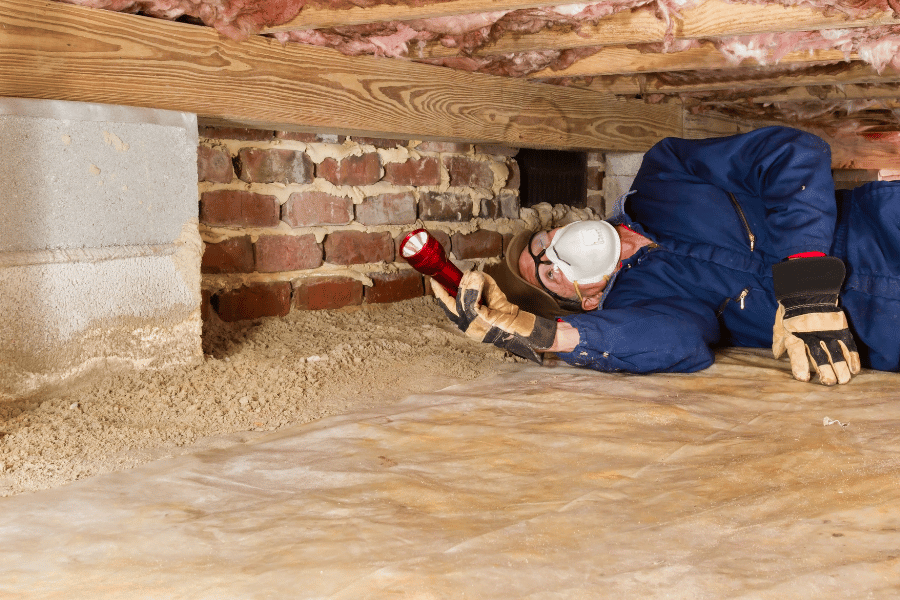
.png)
